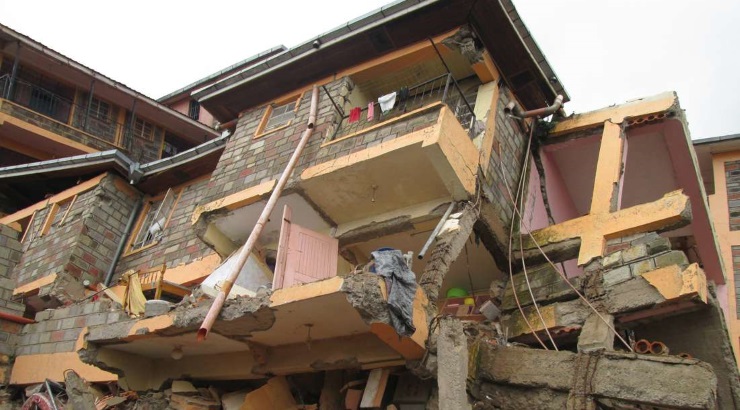Industry News
State Now Initiates Crackdown on Rogue Builders
The move follows a spate of deadly building collapse in Kiambu and Nairobi.

The Kenyan government has activated a brutal crackdown on rogue property developers in the country as it seeks to avert rising cases of building collapse.
The crackdown, which is underway in Kiambu County, targets builders who put up shoddy buildings that end up collapsing – leaving trails of death and destruction.
According to Interior Cabinet Secretary (CS) Kithure Kindiki, the government has resolved to take tough proactive measures to forestall a possible crisis in the construction industry.
“We will not allow our people to die or to be hurt for the government to move in here and start crying with the citizenry,” Prof. Kindiki said on Monday while commissioning GSU Primary School – Kimbo in Juja, Kiambu County.
“We have declared a war on contractors and builders who are defying government procedures in the construction industry by putting up buildings illegally and in a manner that is posing danger to people.”
Enforce existing laws
The CS said the government will enforce the existing laws governing the way business is conducted across the building and construction sector.
The recent spate of building collapse in Kenya has assumed a worrying dimension as many lives have been lost especially in Kiambu and Nairobi, where huge demand for housing often sees builders bypassing rules in the race to build flats.
RELATED: 6 Main Causes of Building Collapse in Kenya
Kiambu governor Kimani Wamatangi, who accompanied Prof. Kindiki, said he had commissioned an audit of all buildings across the country – both complete and those under construction – to examine their structural integrity.
“This is to address the continuous collapsing of buildings leading to deaths, in what has been attributed to poor workmanship as a result of failure by the county government to enforce compliance,” Mr Wamatangi said.
RELATED: Fresh Audit of City Buildings Ahead of Mass Demolitions
The governor warned investors against undertaking and commissioning projects without obtaining the requisite approvals, including occupational certificates.
Eighty-seven buildings have collapsed in the country over the past five years – claiming the lives of about 200 people and injuring over 1,000 individuals.
Of these cases, 65% are residential, 25% commercial and 10% are mixed-use developments, which shows developers of residential flats are more likely to hire unaccredited contractors in a bid to cut construction costs.














